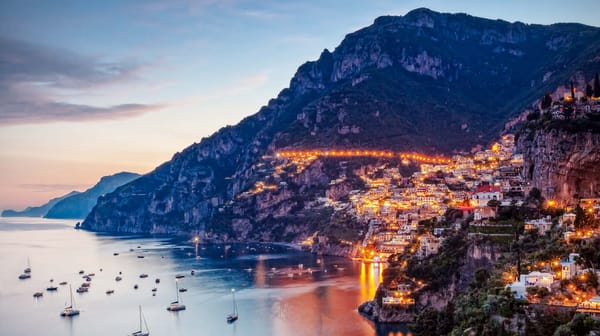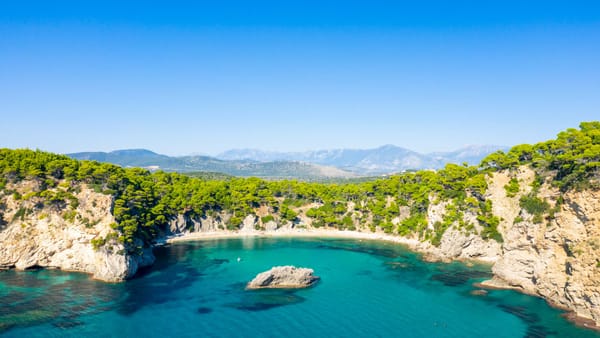Tourism is a dynamic and vital sector of the global economy, contributing significantly to the GDP of many countries and providing employment to millions. Over the past few decades, tourism has diversified, with budget and nomadic tourism emerging as popular trends.
While these forms of tourism offer affordable travel options and cater to the growing desire for unique, off-the-beaten-path experiences, they also come with various economic, social, and environmental challenges.
Delve into why we should reconsider budget and nomadic tourism to promote a more sustainable and balanced approach to global travel.
Economic Impacts
Low Contribution to the Local Economy
Budget tourists typically spend less on accommodations, food, and activities, which can limit the economic benefits to local communities. High-end tourism often brings more significant financial contributions, as tourists are willing to spend more on local goods and services. For instance, luxury tourists are more likely to dine at high-end restaurants, shop for local crafts, and stay in upscale hotels, which creates more substantial income for local businesses. This disparity can hinder the economic development of tourism-dependent areas that rely heavily on the spending power of visitors.
Overburdening Infrastructure
The influx of budget tourists can strain public infrastructure such as transportation, sanitation, and public facilities. Many destinations, especially those that are less developed, may be unable to handle large numbers of visitors, leading to overcrowded streets, congested public transport, and overburdened sanitation systems. This not only diminishes the quality of life for residents but also detracts from the overall tourist experience.
Undermining Sustainable Tourism
Budget tourism can inadvertently support businesses that do not invest in sustainable practices. Cheaper accommodations and tours might cut corners on environmental regulations, contribute to pollution, or exploit natural resources without considering long-term sustainability. This can undermine efforts to promote responsible tourism and preserve natural and cultural heritage sites.
Social Impacts
Cultural Erosion
The high volume of budget tourists can lead to the commercialization and dilution of local cultures. As destinations cater to the preferences of budget travelers, there is often a shift towards homogenized experiences that prioritize affordability over authenticity. This can erode traditional customs, practices, and lifestyles, causing a loss of invaluable cultural heritage to local communities and the world.
Displacement of Locals
The rise of budget accommodation options such as Airbnb has been linked to increasing housing costs and the displacement of residents. As property owners convert residential homes into short-term rentals, the supply of affordable housing for locals diminishes, leading to gentrification and social tensions. This issue is particularly pronounced in popular tourist destinations with high demand for cheap lodging.
Social Tensions
Large numbers of budget tourists can create friction with local populations, especially when visitors are perceived as disrespectful or insensitive to local customs and norms. Instances of inappropriate behavior, such as disrespecting sacred sites, disregarding local dress codes, or engaging in disruptive activities, can lead to resentment and social conflict. This tension undermines the hospitality essential for a positive tourism experience and can damage a destination's reputation.
Environmental Impacts
Environmental Degradation
Budget tourists may be less likely to pay for eco-friendly accommodations or participate in sustainable activities, leading to more significant environmental degradation. Cheaper options often lack proper waste management systems, contribute to pollution, and exploit natural resources unsustainably. For example, budget accommodations might not invest in energy-efficient systems or adequate waste disposal, resulting in higher carbon footprints and environmental damage.
Increased Footprint
The sheer number of budget tourists can lead to overcrowding in natural and cultural sites, exacerbating wear and tear and potentially causing long-term damage. Popular destinations like national parks, heritage sites, and beaches can suffer from overuse, leading to soil erosion, habitat destruction, and pollution. The cumulative impact of many low-spending tourists can be more detrimental than a smaller number of high-spending visitors.
Resource Strain
High volumes of low-spending tourists can strain natural resources such as water and energy, particularly in destinations not equipped to handle large numbers of visitors. This is especially problematic in areas with fragile ecosystems or limited resources, where tourist demand can deplete local supplies and negatively impact the environment and resident populations.

Quality Over Quantity
Attracting Higher-Spending Tourists
Destinations might prefer fewer, higher-spending tourists who contribute more significantly to the local economy and infrastructure. These tourists are more likely to invest in high-quality experiences, patronize local businesses, and support sustainable practices. By targeting this demographic, destinations can generate more revenue with fewer visitors, reducing the strain on resources and infrastructure.
Enhanced Visitor Experience
Reducing the number of budget tourists can enhance the overall visitor experience by avoiding overcrowding and preserving the quality of attractions. Tourists seeking unique and tranquil experiences are more likely to be satisfied in less crowded destinations. This approach can lead to better reviews, repeat visits, and a more favorable reputation, ultimately attracting more discerning travelers.
Sustainability and Long-term Planning
Focus on Sustainable Practices
Encouraging a shift away from budget tourism can help destinations invest in sustainable tourism practices that ensure long-term viability. These practices benefit the environment and enhance a destination's appeal to environmentally-conscious travelers. This includes promoting eco-friendly accommodations, supporting conservation efforts, and implementing policies that protect natural and cultural resources.
Balanced Growth
A more controlled approach to tourism can help balance growth with preserving local environments, cultures, and communities. Destinations can develop more resilient and sustainable tourism models by managing tourist numbers and focusing on quality over quantity. This balanced growth ensures that the benefits of tourism are distributed equitably and that the negative impacts are minimized.
Policy Recommendations
Implementing Tourist Taxes
Tourist taxes can effectively generate revenue from visitors and mitigate the negative impacts of budget tourism. These taxes can fund infrastructure improvements, environmental conservation, and cultural preservation efforts. By charging a small fee per visitor, destinations can ensure that all tourists contribute to the sustainability of the local environment and community.
Regulating Short-term Rentals
Regulating short-term rentals like Airbnb can help address housing affordability issues and local displacement. Policies such as licensing requirements, limits on the number of rental days, and taxes on short-term rentals can help balance the needs of tourists and residents. These regulations ensure that tourism does not negatively impact local housing markets and communities.
Promoting Sustainable Accommodations
Encouraging the development and use of sustainable accommodations can reduce tourism's environmental footprint. Certification programs, incentives for eco-friendly practices, and marketing support for sustainable businesses can promote greener tourism options. Tourists should be educated about the benefits of choosing eco-friendly accommodations and encouraged to make responsible choices.
Supporting Local Businesses
Promoting local businesses and experiences can enhance the economic benefits of tourism for local communities. Initiatives such as farmers' markets, local craft fairs, and community-based tourism projects can provide unique and authentic experiences for tourists while supporting local economies. By prioritizing local businesses, destinations can ensure that tourism revenue benefits the community.
Environmental Education and Awareness
Raising awareness about tourism's environmental impacts and promoting responsible travel practices can help mitigate adverse effects. Educational campaigns, guidelines for tourists, and collaborations with tour operators can encourage environmentally conscious behavior. Tourists should be informed about preserving natural and cultural resources and encouraged to minimize their impact.

In Summation
Budget and nomadic tourism have opened up travel opportunities to a broader audience, fulfilling the desire for affordable, unique experiences. However, the economic, social, and environmental challenges associated with these forms of tourism necessitate a re-evaluation of their long-term viability. Destinations can ensure that tourism remains a positive and sustainable force by attracting higher-spending tourists, implementing sustainable tourism practices, and balancing growth with preservation.
A more sustainable approach to tourism benefits not only the destinations and their communities but also the tourists who seek meaningful and enriching experiences. By addressing the challenges of budget and nomadic tourism, we can create a more balanced, responsible, and rewarding travel landscape for everyone involved. The future of tourism depends on our ability to adapt and innovate, ensuring that we protect the very places and cultures that make travel so compelling.






